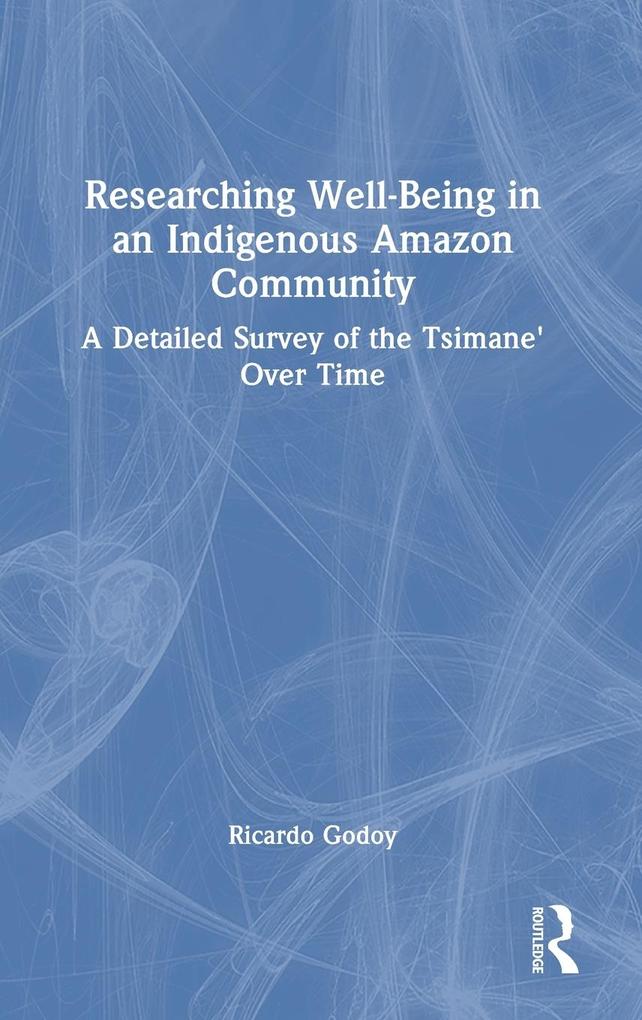
Zustellung: Fr, 01.08. - Mi, 06.08.
Versand in 2 Wochen
VersandkostenfreiBestellen & in Filiale abholen:
This book aims to provide the first comprehensive, multi-year, systematic, empirical assessment in the behavioral sciences of how well-being changes over time in a rural society of Indigenous People in the Global South.
Inhaltsverzeichnis
About the Author
Acknowledgements
Introduction
Chapter 1. Tsimane', their neighbors, and Westerners: the past 500 years
Chapter 2. History and findings from TAPS and longitudinal studies in anthropology
Chapter 3. The setting and methods to gather information
Chapter 4. Asking what makes people happy and sad is a gateway into the perceived causes of subjective well-being
Chapter 5. Using food to assess well-being, income, and income inequality
Chapter 6. Farming, an indirect runway to Tsimane' subjective well-being
Chapter 7. Well-being: staying healthy despite breakdowns
Chapter 8. Well-being: a world of limited and wilting sociality
Chapter 9. The marketplace: cash earnings, expenditures, swaps, and asset borrowing to bolster well-being.
Chapter 10. Economic inequalities and well-being: why yoke them?
Chapter 11. Takeaways and the future
Appendix A. Where to find TAPS datasets and the electronic report of the longitudinal study
Appendix B. A selective review of cross-sectional studies by the TAPS team
Acknowledgements
Introduction
Chapter 1. Tsimane', their neighbors, and Westerners: the past 500 years
Chapter 2. History and findings from TAPS and longitudinal studies in anthropology
Chapter 3. The setting and methods to gather information
Chapter 4. Asking what makes people happy and sad is a gateway into the perceived causes of subjective well-being
Chapter 5. Using food to assess well-being, income, and income inequality
Chapter 6. Farming, an indirect runway to Tsimane' subjective well-being
Chapter 7. Well-being: staying healthy despite breakdowns
Chapter 8. Well-being: a world of limited and wilting sociality
Chapter 9. The marketplace: cash earnings, expenditures, swaps, and asset borrowing to bolster well-being.
Chapter 10. Economic inequalities and well-being: why yoke them?
Chapter 11. Takeaways and the future
Appendix A. Where to find TAPS datasets and the electronic report of the longitudinal study
Appendix B. A selective review of cross-sectional studies by the TAPS team
Produktdetails
Erscheinungsdatum
28. März 2025
Sprache
englisch
Seitenanzahl
260
Autor/Autorin
Ricardo Godoy
Verlag/Hersteller
Produktart
gebunden
Gewicht
508 g
Größe (L/B/H)
234/156/14 mm
ISBN
9781032951317
Entdecken Sie mehr
Bewertungen
0 Bewertungen
Es wurden noch keine Bewertungen abgegeben. Schreiben Sie die erste Bewertung zu "Researching Well-Being in an Indigenous Amazon Community" und helfen Sie damit anderen bei der Kaufentscheidung.










